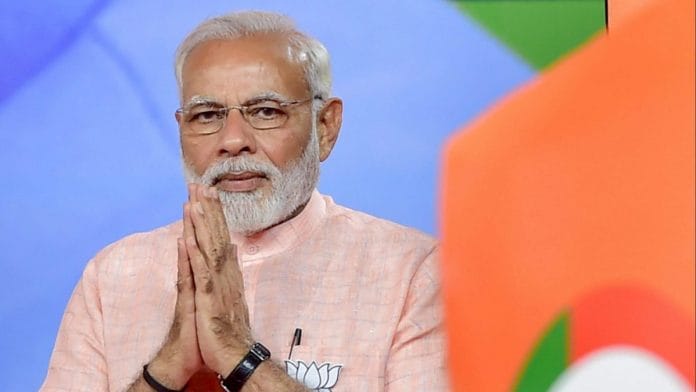We had hailed the verdict of 2009 as an affirmation of the rise of an aspirational new India, leaving behind the old politics of grievance. The mandate of 2014 is a logical step forward. Aspirational voters are also impatient, unforgiving, uncluttered and more transactional. You come to them seeking the supreme gift in a democracy, the gift of power to rule over them and the first question they are likely to ask you is, what will you do for me? If you are old-fashioned and are disconcerted by this, you can call this the arrival of India’s selfie generation. But it’s a reality. We would, therefore, prefer to hail this as the rise of India’s post-ideological young generation. And politics.
This is a provocative formulation. It will be contested and, arguably, so. If BJP’s entire Lok Sabha contingent of 272+ does not have a single Muslim – which means a population segment of nearly 15 per cent has found no representation in what is a national wave – can you really call this verdict post-ideological? Isn’t this, on the contrary, a majoritarian assertion, the final victory of the social right, a garv se kaho hum majority hain moment? It would be tempting but avoidable to jump to hasty conclusions yet.
For one, Narendra Modi has not used any polarising language or articulated any exclusivist agenda through his campaign. On minorities and foreign policy, his language has been measured and mainstream. We are, of course, overlooking some of the campaign static from some of his supporters. Second, he has masterfully sold the dream of a fast-developing, booming India.
Also read: Situation normal, but all locked up: How Modi govt has risked incapacitating India
We should welcome the fact that this is a victory achieved primarily on an unqualified promise of economic reform never seen in our political history, soaked as it is in the fading pink of fake socialism. This result, therefore, is also a devastating popular rejection of outdated, Congress-style povertarianism: I declare all of you Indians hungry and wretched and will throw free food at you. I will feed you a free meal at my school even if I cannot teach you anything there because my teachers don’t come to work. This has been dumped down the garbage chute now.
It is also a mandate for Indian self-esteem. For five years we had a government run under an arrangement humiliating to India. No democracy likes the office of its chief executive diminished to dust while power lies with those with no accountability and who rule through coteries, cabals and arbitrary, fanciful extra-constitutional arrangements, be it the NAC, or the party Core Group. We had often described this as UPA-II’s auto-immune disease. The collective Indian immune system has now fought back. But is this the end of the Congress yet? In politics, you should never say never. In 1984, BJP had two seats.
Today it has 282. But for Congress to rebuild, it will have to learn ideological, philosophical and strategic lessons. Its leaders have to accept that the party is paying, primarily, for their blunders. But if the Congress doesn’t modernise its mind, and cannot rouse itself from the seventies where it leaped backwards in the last five years, it may be the end. Its future lies in acknowledging that India’s politics will now be truly fought from the ideological left and right of the centre. It can choose to stay on the left but will have to find more relevant ideas than free this or that or a declining dynasty.
Also read: Global outreach, internal motivation: The crux of PM Modi’s Buddha Purnima speech
There have been bigger mandates, notably Rajiv Gandhi’s in 1984. But that resulted from fear, insecurity, sympathy and indeed the promise of a young new leader. This one is much more aggressive, assertive and muscular. That is why it is so valuable. It has raised Modi to the stature of possibly the most powerful self-made Indian leader ever: remember, even Jawaharlal Nehru was Motilal’s son. It is even more creditable given where he comes from, his limitations of caste, economic and social status; formal education; small, distant state origins; and lack of New Delhi experience.
He has run a brilliant and single-minded campaign. People have gifted him the power to change history, to mould it in his image. He needs to handle this very carefully. He insists he doesn’t believe in appeasement. But he will need to reach out to the minorities, many of whom fear his rise. This is no time for majority triumphalism and you cannot govern a nation as diverse as ours if so many of our minorities feel insecure, excluded and unrepresented. Good leaders in democracies win power but great ones learn statesmanship from power. That is Narendra Modi’s historic opportunity. Meanwhile, he deserves the best wishes of all of India as it savours the remarkable rise of this ordinary, yet extraordinary Indian.
Also read:Don’t absolve Modi by saying he doesn’t have the right team to bring in economic reforms






